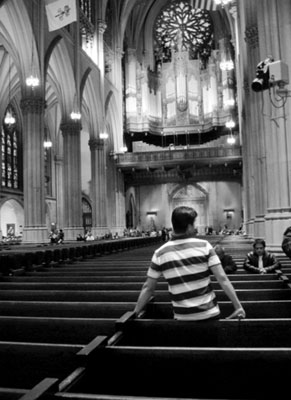All Nonfiction
- Bullying
- Books
- Academic
- Author Interviews
- Celebrity interviews
- College Articles
- College Essays
- Educator of the Year
- Heroes
- Interviews
- Memoir
- Personal Experience
- Sports
- Travel & Culture
All Opinions
- Bullying
- Current Events / Politics
- Discrimination
- Drugs / Alcohol / Smoking
- Entertainment / Celebrities
- Environment
- Love / Relationships
- Movies / Music / TV
- Pop Culture / Trends
- School / College
- Social Issues / Civics
- Spirituality / Religion
- Sports / Hobbies
All Hot Topics
- Bullying
- Community Service
- Environment
- Health
- Letters to the Editor
- Pride & Prejudice
- What Matters
- Back
Summer Guide
- Program Links
- Program Reviews
- Back
College Guide
- College Links
- College Reviews
- College Essays
- College Articles
- Back
Biography of Martin Luther
Martin Luther was born on November 10, 1483 in Eisleben, Germany. His parents were Hans and Margarethe Luther. As a young child, he was well educated. His father pushed him to study and do his work because he wanted him to be a lawyer. Martin went to the University of Erfurt from 1501 to 1505, and graduated with his Master of Arts degree in grammar, logic, rhetoric, and metaphysics. It seemed that he would be doing exactly what his father wanted him to do and become a lawyer. However, one night changed everything. He found himself caught in the middle of a horrible and dangerous thunderstorm. It was so bad that he thought he was going to be killed. He cried out for the help of St. Anne, and said that if she helped him, he would become a monk. The storm passed, and Martin refused to go back on his promise to become a monk. His father was upset that he was not going to become a lawyer, but he felt that that was the right thing for him to do. He also thought that it was the only way that he could know if he did enough to please God. Martin wanted to know what his relationship with God was like. So, when he was 21 (in 1505), he became an Augustinian monk. His life became full of prayer, work, and fasting. Who would have ever guessed that Luther would be the man that would confront the Catholic Church and change European history?
Luther’s rebellion began when he became frustrated that the church was selling indulgences, or the remission of the temporal punishment due to sins already forgiven by God. The Church was selling access to heaven to the public on behalf of themselves and the deceased for sins they have committed or even were going to commit in the future. Luther felt that the Church had lost its way. He made a list of 95 things that he thought were wrong with the Church. He went way past indulgences and onto many other topics such as papal power. This list was called the 95 Theses. In 1521, he met with Charles V, the Holy Roman Emperor (at the time), and an official Church meeting, or Diet, took place in the German town of Worms. Charles V, with Pope Leo’s permission, convicted Luther as a heretic. Then, he received a letter from Pope Leo that threatened him with excommunication, and he publicly burned it. He continued to spread negative thoughts about the Church and the authority of the pope to the public. Luther was banished from the Holy Roman Empire. For ten months after the Diet in Worms, he hid away in a castle in Wartburg. While he was in the castle, he began the second part of his rebellion. He translated the New Testament into German.
In 1522, Luther returned to Wittenberg. He was able to avoid arrest or any other punishment. He married Katharina von Bora and had six children. Luther started what was known as the Protestant Reformation. He gained many followers, and they split from the Catholic Church and began to follow Protestant tradition. They became known as Lutherans. Luther changed Christianity by beginning the Protestant Reformation in the 16th century in Europe. In 1533, he became a professor at the University of Wittenberg. He was the dean of theology, or the study of God. He became very ill and suffered from arthritis, heart problems, and digestive disorders. His life was also very stressful because he was a fugitive. He expressed his feelings in his writings. Many of his writings offended people of other religions, especially Muslims and Jews. He died on February 18, 1546. He was 62 years old. Even though his physical body no longer was on the earth, he left behind a legacy that would change Christianity forever. He separated the Catholic Church into several different divisions, and helped with the major reform that was needed in the Church. He allowed people to feel closer to God, and even allowed the German people to be able to read the New Testament. He was an important part of the history of the Church. Without him, the Church may not be where it is today.

Similar Articles
JOIN THE DISCUSSION
This article has 0 comments.
